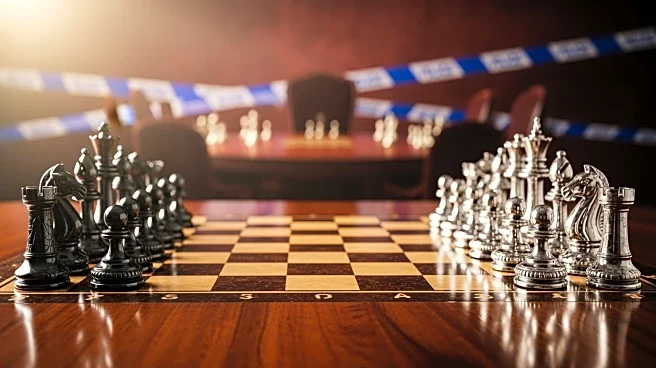What's Happening?
Vladimir Putin is expected to travel to Hungary for discussions with U.S. President Donald Trump regarding the ongoing conflict in Ukraine. This meeting is notable as Putin is currently facing an International Criminal Court (ICC) arrest warrant for alleged
involvement in the abduction of children from Ukraine. The ICC, headquartered in The Hague, Netherlands, relies on member countries to arrest suspects, but Hungary has shown reluctance to cooperate, having previously hosted Israeli Prime Minister Benjamin Netanyahu, who is also wanted by the ICC. Hungary's Prime Minister Viktor Orbán has indicated plans to withdraw from the ICC, further complicating the situation.
Why It's Important?
The meeting between Putin and President Trump could have significant implications for international diplomacy and the resolution of the Ukraine conflict. The ICC's inability to enforce its arrest warrant highlights challenges in international law enforcement, especially when major powers like the United States, Russia, and China are not members. The U.S. has previously imposed sanctions on the ICC, accusing it of targeting American and Israeli interests. This meeting may influence geopolitical alliances and the ICC's future effectiveness in prosecuting international crimes.
What's Next?
The outcome of the meeting between Putin and President Trump could impact diplomatic efforts to end the Ukraine conflict. Hungary's potential withdrawal from the ICC may affect its international standing and relations with other member states. Observers will be watching for any agreements or statements that emerge from the talks, which could shift the dynamics of the conflict and international responses.
Beyond the Headlines
The ICC's challenges in enforcing arrest warrants raise questions about the effectiveness of international justice systems. The reluctance of countries to cooperate with the ICC may lead to discussions on reforming international legal frameworks to better address crimes against humanity and war crimes.
















